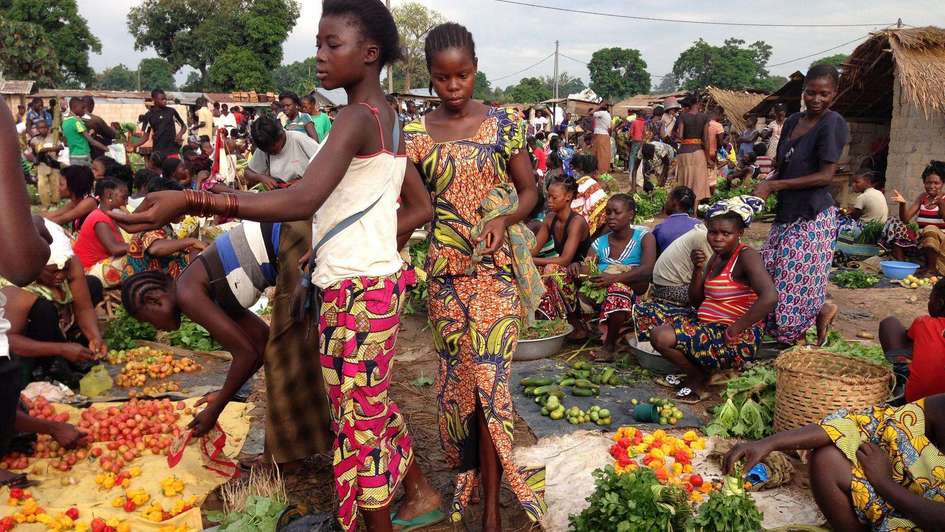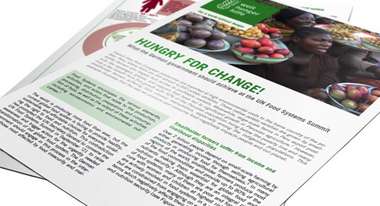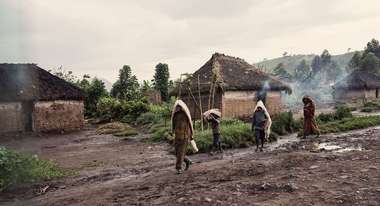Welthungerhilfe Calls for Fundamental Reform of the Food System
On Thursday, the Food Systems Summit will take place in New York.

Bonn/Berlin, 2021-09-21. On Thursday, the Food Systems Summit will take place as part of the UN General Assembly session in New York. As hunger is on the rise, governments, academia, civil society, and the private sector are looking for ways to fundamentally transform the global food system. The current system is not fair, sustainable, or crisis-proof. Welthungerhilfe calls on the German federal government to support the development and reinforcement of local and regional food systems, giving special consideration to the interests of people suffering from hunger and poverty. In Germany, too, decisions in areas like trade and energy policy cannot be allowed to have a detrimental impact on food security, for example by causing people in the Global South to be displaced from their land in order to make room for export production. Regarding agricultural production and supply chains, governments must exercise due diligence with regard to human rights and the environment. The UN summit must introduce a system change that will ultimately make it possible for even ten billion people to enjoy a healthy diet without destroying nature and the climate. The right to healthy food is a human right.
“More food is being produced worldwide than ever before. And yet, 811 million people are still going hungry. In many parts of the world, small-scale farmers account for the majority of food production and supply up to 80 percent of basic nutrients. Despite this, they are especially affected by poverty and undernutrition. The way we are currently cultivating, processing, and selling food — effectively from the field to the plate — requires a consistent reform to achieve the agreed goal of ending hunger throughout the world by 2030. It is neither fair nor sustainable for potato chips to be exported from Europe to Peru, where 4,000 varieties of potatoes are being grown by small-scale farmers who have no access to profitable markets and live under the poverty line,” stresses Marlehn Thieme, the chair of the board of Welthungerhilfe.
Welthungerhilfe is one of the largest private aid organisations in Germany; politically independent and non-denominational. It is fighting for “Zero Hunger by 2030”. Since it was founded in 1962, more than 10,369 overseas projects in 70 countries have been supported with 4.2 billion euros. Welthungerhilfe works on the principle of empowering people to help themselves: from fast disaster relief to reconstruction and long-term development cooperation projects with national and international partner organisations.








